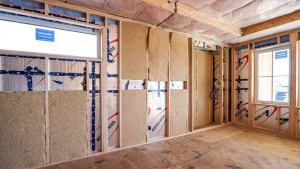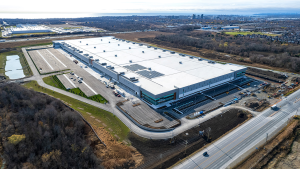The United Steelworkers (USW) are attempting to make a connection between the Chinese government and a Vancouver company that is importing Chinese temporary foreign workers (TFWs) for the construction of a coal mine in northeastern B.C.
“Part of the reason we are doing this research, is that these companies have not been very forthcoming with information,” said Scott Lunny, spokesperson for the USW District 3, which represents workers in Alberta, B.C., Manitoba, Saskatchewan, Yukon, Northwest Territories and Nunavut.
“We went deeper and had people doing research in China and in the Chinese language.”
The USW recently released a report entitled Who Owns Huiyong Holdings and other Questions on Planned Chinese-Owned Coal Mines in B.C.
The report investigates the ownership structure of HD Mining International, which is a private corporation involved in the construction of the Murray River underground coal mine near Tumbler Ridge, B.C.
“All we are saying is this is all we can find out,” said Lunny.
“If they (HD Mining) are as big a deal as they say they are, you would think there would be information available about who they are and who owns them, as well as what they have done in the past.”
HD Mining’s website states that the company was incorporated in B.C. in 2011 and is made up of two majority partners, Huiyong Holdings (BC) Ltd. (55 per cent) and Canadian Dehua International Mines Group Inc. (40 per cent).
A private Chinese company called Huiyong Holding Group (HHG) is the parent company of the majority investor Huiyong Holdings (BC) Ltd.
However, the USW research team, which was assisted by experts in China, couldn’t determine who owns the parent company HHG.
“The company itself (HHG) seems to consist of little more than an email address, phone number and street address located in a modest building in a Beijing suburb,” said the USW report.
“It has no obvious website – none in Chinese, none in English.”
The USW researchers found very little information about HHG through a search of Chinese online sources, as well as mining, corporate and media directories.
For example, HD Mining’s website said HHG currently operates more than nine mines throughout China.
However, the USW research team was unable to find out where these mines are located or how many people work at these mines.
For this reason, the report concludes that there is no publicly-available evidence that HHG actually operates any mines.
As a result, the USW report alleges the financial and industrial resources required for the construction and operation of the Murray River mine comes directly from the Chinese government.
This allegation is supported through the identification of some of the key individuals behind HHG.
For example, the report said B.C. employment minister Pat Bell had a meeting in Beijing in November 2011 with Ye Qing, who was HHG’s chief consultant.
Ye Qing is a high-level member of the Chinese government and the ruling Chinese Communist Party (CCP).
He has been an alternate member of the central committee of the CCP, vice-minister of the Ministry of Coal Industry and president of state-owned Shenhua Group, which is one of the world’s largest coal mining corporations.
Given this information, the USW report concludes that HHG is a shell company that is a vehicle for business transactions, without itself having any significant assets or operations.
In China, HHG is reported to have a relatively-modest capitalization of about $15 million.
However, the capital cost of the Murray River project is estimated to be $1.4 billion over the 40 year life span of the mine.
The USW report claims HHG’s purpose is to mask the fact that HD Mining and Canadian Dehua are both actually completely state-owned and state-run organizations.
The company has refuted these allegations.
The report argues that this is a normal way for Chinese government-backed companies to do business offshore.
In this case, they claim that Chinese state-owned enterprises have established a company in Vancouver to buy up offshore assets and secure coal supplies.
Last month, HD Mining upheld its right in federal court to employ 201 Chinese TFWs for the initial $300 million development phase of the Murray River project.
However, the International Union of Operating Engineers Local 115 and Local 1611 of the Construction and Specialized Workers Union are proceeding with a judicial review into the process that granted the foreign workers permission to enter Canada.
The unions argue that Human Resources and Skills Development Canada failed to ensure there were no Canadians to do the work.
In addition, they claim that the TFWs are being offered wages far below prevailing rates.










Recent Comments
comments for this post are closed